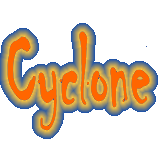15-02-2025, 03:34 AM
A Java Full Stack Developer needs both front-end and back-end development skills, along with knowledge of databases, deployment, and DevOps. Here’s a breakdown of the essential skills:
1. Front-End Development Skills
HTML, CSS, JavaScript – Basics of web development.
CSS Frameworks – Bootstrap or Tailwind CSS for responsive design.
JavaScript Frameworks/Libraries – React.js (most popular) or Angular for building interactive UIs.
State Management – Redux (for React) or RxJS (for Angular).
2. Back-End Development (Java & Frameworks)
Core Java – OOP, Collections, Exception Handling, Multithreading, Java 8 features (Lambdas, Streams).
Spring Framework –
SQL – MySQL, PostgreSQL, or Oracle.
NoSQL – MongoDB (for flexible and scalable databases).
JPA & Hibernate – ORM for database interaction in Java.
Visit more- Full Stack Classes in Pune
4. DevOps & Deployment
Version Control – Git & GitHub.
CI/CD Pipelines – GitHub Actions, Jenkins, or GitLab CI/CD.
Containerization – Docker & Kubernetes.
Cloud Platforms – AWS, Azure, or Google Cloud (EC2, S3, Lambda).
Build Tools – Maven & Gradle.
5. Additional Skills
Testing – JUnit, Mockito, Selenium (for automation testing).
Message Queues – RabbitMQ or Apache Kafka for event-driven architecture.
WebSockets – For real-time communication.
Caching – Redis or Memcached for performance optimization.
6. Soft Skills & Best Practices
Problem-Solving & Data Structures – Competitive coding can help.
Code Quality & Clean Code – SOLID Principles, Design Patterns.
Team Collaboration – Agile, Scrum, Jira for project management.
7. Full-Stack Java Project Ideas (For Practice)
E-Commerce Platform (Spring Boot + React.js/Angular + MySQL).
Chat Application (WebSockets + Spring Boot + React.js).
Employee Management System (Spring Boot + Angular + PostgreSQL).
Job Portal (Spring Boot + React + MongoDB).
Visit more- Full Stack Developer Course in Pune
1. Front-End Development Skills
HTML, CSS, JavaScript – Basics of web development.
CSS Frameworks – Bootstrap or Tailwind CSS for responsive design.
JavaScript Frameworks/Libraries – React.js (most popular) or Angular for building interactive UIs.
State Management – Redux (for React) or RxJS (for Angular).
2. Back-End Development (Java & Frameworks)
Core Java – OOP, Collections, Exception Handling, Multithreading, Java 8 features (Lambdas, Streams).
Spring Framework –
- Spring Boot – For building REST APIs.
- Spring MVC – Web application framework.
- Spring Security – Authentication & Authorization.
- Spring Data JPA / Hibernate – ORM for database interaction.
- Microservices Architecture – Understanding RESTful APIs, API gateways, and service discovery.
SQL – MySQL, PostgreSQL, or Oracle.
NoSQL – MongoDB (for flexible and scalable databases).
JPA & Hibernate – ORM for database interaction in Java.
Visit more- Full Stack Classes in Pune
4. DevOps & Deployment
Version Control – Git & GitHub.
CI/CD Pipelines – GitHub Actions, Jenkins, or GitLab CI/CD.
Containerization – Docker & Kubernetes.
Cloud Platforms – AWS, Azure, or Google Cloud (EC2, S3, Lambda).
Build Tools – Maven & Gradle.
5. Additional Skills
Testing – JUnit, Mockito, Selenium (for automation testing).
Message Queues – RabbitMQ or Apache Kafka for event-driven architecture.
WebSockets – For real-time communication.
Caching – Redis or Memcached for performance optimization.
6. Soft Skills & Best Practices
Problem-Solving & Data Structures – Competitive coding can help.
Code Quality & Clean Code – SOLID Principles, Design Patterns.
Team Collaboration – Agile, Scrum, Jira for project management.
7. Full-Stack Java Project Ideas (For Practice)
E-Commerce Platform (Spring Boot + React.js/Angular + MySQL).
Chat Application (WebSockets + Spring Boot + React.js).
Employee Management System (Spring Boot + Angular + PostgreSQL).
Job Portal (Spring Boot + React + MongoDB).
Visit more- Full Stack Developer Course in Pune






